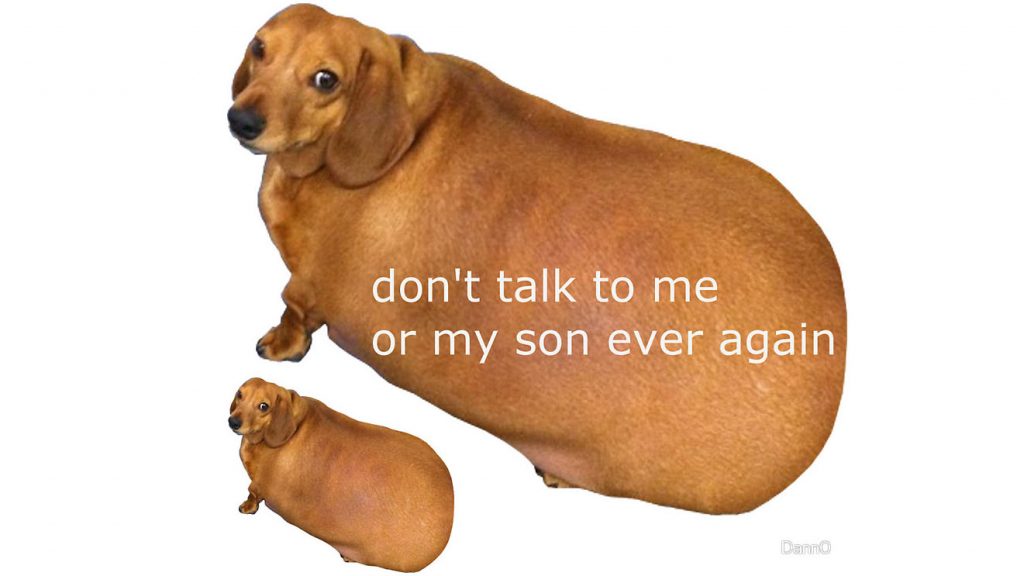So you’ve done all the steps to promote your new game, you’ve reached out to press, you’ve been receptive to initial feedback, your game’s community is growing every day, but oh no, Shock! Horror! One of the influencers that you approached with a couple of keys has made a YouTube video absolutely tearing your game to pieces!
You’re angry, you’re scared, you’re thinking “but they’re wrong about x” and “why haven’t they considered y?” Don’t worry – it’s completely normal to feel that way, so let’s dig into it a little.

The non-reactive PR approach
Your game can oftentimes feel a lot like your child. It’s something you’ve poured an overwhelming amount of time and effort into, you’ve worked hard to lift it up where it needs lifting, and you’ve been so proud of it when everything comes together and it truly shines for the first time. Unfortunately, this similarity to parenthood creates the same defensive response when your baby (be it flesh or code) is threatened. Many developers big and small fall into the trap of arguing with those that criticize their games, and really nobody can blame them, it’s an easy trap to fall into if you’re not adequately prepared. Like a good parent, a good developer needs to be receptive to criticism, in all its forms, and learn to separate the good from the bad.
I’ll expand on the science in a moment, but if you take nothing else from this article, do NOT ever argue with an influencer if they criticize your game, especially not on social media. Always be aware that outside of your development team, everyone looks at the game you made from a different perspective. You see all the work, the late nights, that frustrating mechanic that you finally got to work almost by accident after weeks attempting a fix. Nobody else sees this, they only see the product in its current status, and that’s okay. One of the most important things you can do as a developer is to be open to the feedback of people playing your game, there might even be some really constructive points in there for future updates or even new projects.

If you’ve got nothing nice to say…
The main reason why you should avoid defensive communication with an influencer is obvious to anyone, it looks bad. Whether by leaked email chain or a back-and-forth shouting match on Twitter, it’s too easy for your company’s reputation to be tarnished by nasty words, criticism of the influencer, and perhaps worst of all, telling them that they’re playing it wrong or just don’t get it. I highlight these last two in particular because if you’re publicly telling people they’re playing your game wrong, you’re digging a hole for your brand that’s very hard to escape from. What draws gamers to the medium is the freedom to consume art through their own unique approach, so invalidating that crucial part of what makes gaming unique as an art form risks crippling your brand’s reputation, especially if it’s one of your first projects.
Now for the sciencey bit, during my Master’s degree in Digital Marketing, I spent about a year extensively researching influencers of various sizes, I had conversations with YouTubers with 2,000 subscribers, to YouTubers with over 100,000 subscribers, Twitch streamers with audiences in the hundreds, to long-time streamers with less than 50 followers. Not to mention surveys and interviews with their audiences and developers alike, so I like to think it’s a topic I’ve got some strong data-driven opinions on. The foremost of which is, it doesn’t really matter all that much if an influencer doesn’t like your game.
This can be surprising for a lot of developers to hear. However, through countless interviews with the followers of YouTubers and Twitch Streamers, the feedback that almost always came back was that they watch the influencer for their personality and unique take – but that the game always speaks for itself. So, an audience’s purchase decisions are made regardless of the influencer’s take on the game.
That isn’t to say you should be throwing your game at any influencer who will take a free key, vetting your influencers should be a crucial part of your marketing strategy for every project your studio works on. What’s important to remember is that any influencer that covers your game is only ever one half of a whole, with your game being the second half of the audience’s experience.

So, we know not to blow up at an influencer when they criticize your game, but what positive steps can you take? Well, the first is pretty simple, engage them in conversation outside of social media, recognize that they didn’t like your product, and ask them for their feedback. It might be useless, it might be a little hard to hear, but it might even be the case that it’s surprisingly constructive and there’s something you can use there going forward! Regardless of the outcome, the simple act of listening to them and being receptive to what they have to say can improve the influencer’s perception of your brand tremendously.
Rather than burning that bridge, be polite and receptive to what influencers have to say and keep that bridge operating. You’ll usually find the influencer will be more receptive to your games, and in turn, their audiences will see your brand in a positive light. Individual purchase decisions about a game are one thing, but seeing you as a developer that listens to someone they care about means the world to them, and you’ll find they are much more likely to be supportive of your company going forward. It’s really dependent on the individual, but there’s no harm in adopting it as practice.
Capitalizing on potential growth from influencer marketing is an entire article in and of itself and not something I’ll be able to even scratch the surface on as we reach the conclusion of this piece, but the key thing to take away from reading this? Your feelings are valid, and it’s perfectly okay to be upset, but as small studios and developers, you don’t get the same protections that Triple-A studios get when interacting with influencers.
Your brand’s reputation lives and dies by the actions of you and your team, including that online space where everything you say is visible forever. I don’t mean for that to sound scary, if anything it’s an opportunity. The need for that courteousness and receptiveness can create the discipline necessary throughout your team to act as a cohesive unit in the world of social media, to constantly be building new bridges, and to prime your next project for success.




